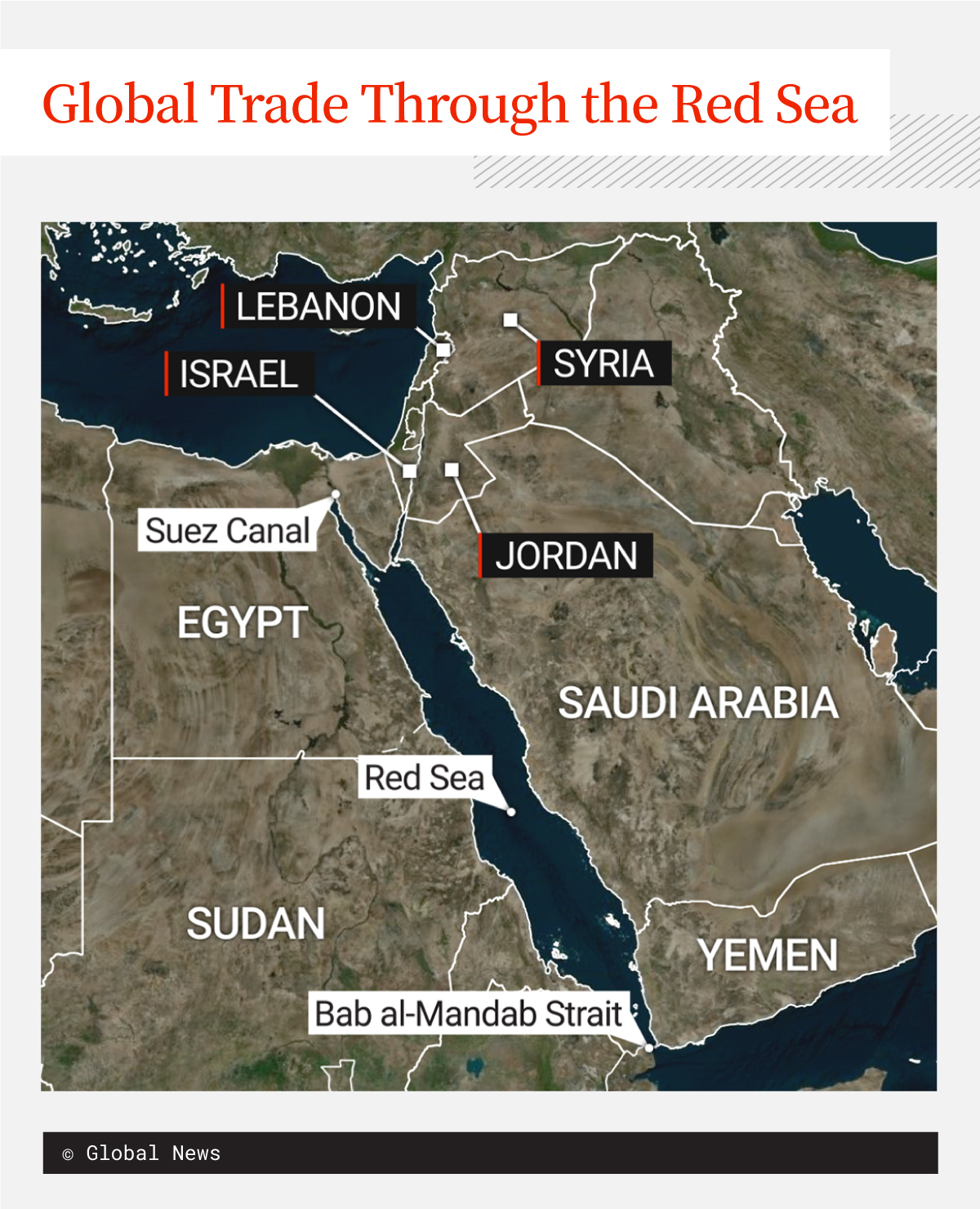The United States and Britain conducted a series of airstrikes on Houthi military positions in Yemen Thursday night in a massive “direct response” to escalating attacks on vessels in the Red Sea, U.S. President Joe Biden confirmed.

The move marks a dramatic escalation of a simmering regional conflict in the Middle East sparked by Hamas’ deadly attack on Israel last October and Israel’s responsive offensive on Gaza.
Canada joined Australia, Bahrain and the Netherlands in providing support for the strikes, but the extent of that support was not immediately clear.
“These targeted strikes are a clear message that the United States and our partners will not tolerate attacks on our personnel or allow hostile actors to imperil freedom of navigation in one of the world’s most critical commercial routes,” Biden said in a statement provided by the White House.
“I will not hesitate to direct further measures to protect our people and the free flow of international commerce as necessary.”
The strikes targeted Houthi-connected facilities storing the rebel group’s combat drones and ballistic and anti-ship missiles, as well as air defence systems and logistical hubs in Yemen, U.S. Defense Secretary Lloyd Austin confirmed in a statement.
Multiple U.S. officials told the Associated Press and Reuters that more than a dozen targets were successfully hit.

The British Defence Ministry said it directly conducted precision strikes on two facilities that had been used by the Houthis to launch drones and missiles.
“In planning the strikes, particular care was taken to minimize any risks to civilians, and any such risks were mitigated further by the decision to conduct the strikes during the night,” the ministry said in a statement.
“The detailed results of the strikes are being assessed, but early indications are that the Houthis’ ability to threaten merchant shipping has taken a blow.”

Get daily National news
British Prime Minister Rishi Sunak and his cabinet held an emergency meeting earlier Thursday evening on a possible military response after a large attack by the Houthis on ships in the Red Sea was repelled by a British warship and U.S. military forces earlier this week.
That attack came days after the U.S., U.K., Canada and several other nations issued a stern warning to the Houthis to stop targeting vessels or face consequences.
In a new joint statement Thursday, those same countries said the airstrikes “were intended to disrupt and degrade the capabilities the Houthis use” in their attacks.
“Our aim remains to de-escalate tensions and restore stability in the Red Sea, but let our message be clear: we will not hesitate to defend lives and protect the free flow of commerce in one of the world’s most critical waterways in the face of continued threats,” the statement said.
The United Nations Security Council had also urged the Houthis to stand down, passing a resolution on Wednesday condemning the Red Sea attacks.
Mohammed al-Bukhaiti, a spokesperson for the Houthis, said on the social media platform X that the U.S. and Britain “will realize that the direct aggression against Yemen was the greatest folly in their history.”
The Houthis are an Iran-backed rebel group that has been attacking western commercial and military vessels in the Red Sea in opposition to Israel’s actions in Gaza.
The attacks have impacted global shipping, as the Red Sea is a vital trade route linking Asia to Europe and North America. Close to 15 per cent of the world’s goods flow through the sea.
Several shipping companies have rerouted their vessels around Africa’s Cape of Good Hope, adding weeks and extra fuel costs to their journeys.
Canada has joined a U.S.-led multinational operation, Prosperity Guardian, that sent additional military assets and personnel to defend ships in the Red Sea and the Gulf of Aden from the Houthi attacks.
Global News has reached out to the Department of National Defence and Global Affairs Canada for comment on how the government was supporting the airstrikes in Yemen, and whether Canadian Armed Forces troops and assets in the region are preparing for a potential retaliation by the Houthis, Iran or other Iran-backed groups.
A DND spokesperson referred questions to Global Affairs Canada.
The U.S. has maintained that Prosperity Guardian is a defensive operation, with Pentagon press secretary Air Force Maj. Gen. Pat Ryder comparing it to a “highway patrol” on Thursday.
But he and the White House have made clear the military assets deployed to the region also have offensive capabilities, and that the U.S. will not hesitate to use them if necessary.
“The Houthis need to stop these attacks … they will bear the consequences for any failure to do so,” White House national security spokesperson John Kirby said on Thursday.

The U.S. military said the Houthis earlier on Thursday had staged their 27th attack on shipping since Nov. 19, firing an anti-ship ballistic missile into international shipping lanes in the Gulf of Aden.
Earlier this week, U.S. and British naval forces shot down a number of drones and missiles fired by the Houthis toward the southern Red Sea.
U.K. Defence Minister Grant Shapps called Tuesday’s barrage “the largest attack from the Iranian-backed Houthis in the Red Sea to date.”
The Houthis, who seized much of Yemen in a civil war, have vowed to attack ships linked to Israel or bound for Israeli ports. However, many of the targeted ships have had no links to Israel.
—With files from the Associated Press and Reuters









Comments